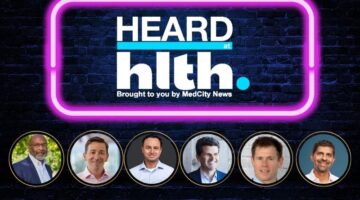
Gen Z is changing the face of healthcare from every angle. As patients, this generation prioritizes communication, access and convenience over privacy, and wants flexible ways to connect with healthcare providers. As employees, they are ambitious and bring more diversity and tech savviness to healthcare organizations. And as key opinion leaders, they are adept at using social media and other digital channels to get their research and evidence to an attentive audience to better influence outcomes.
This generation of inherently tolerant, diverse, socially conscious, and digital-savvy scientists will forever change the future of research. In fact, by 2030, 74% of the American workforce will be made up of Millennials and Gen Z. This segment will completely transform medical affairs teams, how KOLs (key opinion leaders) are defined and engaged, how clinical trials are run, and how treatments go to market – all hopefully leading toward a more equitable future for healthcare.
Generation Z wants to be the generation that finally achieves equality for all. The Gen Z MSL (medical science liaison) can be the change agents by fostering diversity, inclusion, and equity in all facets of the healthcare lifecycle.
The Gen Z MSL
Generation Z is defined as those born between 1997 and 2012 – and by 2025, they will make up about 30% of the workforce.
Gen Z grew up in the digital age. Access to information, social media, and technology often come as second nature, especially with trends and tools like analytics, AI, and machine learning. This generation is used to collaborating in virtual environments, and the Gen Z MSL will interact differently with physicians. They don’t feel a need to build relationships in-person, face-to-face. Picking up a phone is a thing of the past, and Gen Z MSLs are more likely to communicate via text or other digital channels. How they access and use data is also different. This is why so many pharmaceutical and healthcare companies are investing in digital platforms for sourcing new and emerging thought leaders.

Heard at HLTH 2024: Insights from Innovative Healthcare Executives
Executives from Imagine360, Verily, BrightInsight, Lantern, and Rhapsody shared their approaches to reducing healthcare costs and facilitating digital transformation.
Currently, nearly 60% of all medical science liaisons are white and 49% are over the age of 40.
Arthur Chan, vice president of medical affairs at Tarsus Pharmaceuticals, recently wrote an article about the importance of diversity in medical affairs in which he states, “Diverse medical affairs teams are best positioned to serve their customers.” The industry is on board and taking steps to help fuel this effort. For example, the Medical Science Liaison Society recently launched a diversity and inclusion initiative for the MSL community.
Gen Z also has a different perspective on diversity compared to their more experienced peers. As the World Economic Forum put it: “While older generations tend to view diversity through the lenses of race, demographics, equality and representation, [the new generation sees] diversity as a melding of varying experiences, different backgrounds and individual perspectives. They view the ideal workplace as a supportive environment that gives space to varying perspectives on a given issue.”
It is also important for Generation Z to work for companies that have sound principles and aim to make the world a better place. This generation often values company culture and the impact they are making in the community as more important than things like compensation. Racial equality is a key issue for this generation, and they also prioritize gender equality more than any other age group according to a recent study.
Gen Z MSLs Will Redefine KOLs
Pharma companies seek out KOLs with expertise and experience in a specific therapeutic field to offer support in interpreting data, recruiting patients for clinical trials, and educating physician peers about treatment regimens and which patient populations benefit the most.
The issue is that medical affairs tend to only target the “top” academic medical centers and KOLs, and these experts often don’t reflect the demographics of real patients or physicians, nor is there broad diversity of thought. This leads to underrepresentation throughout the healthcare lifecycle, from biased clinical trials to inequitable treatment distribution. It’s a vicious cycle, but one that the Gen Z MSLs are poised to fix.
Callout: In nearly 78% of clinical trials, people of color are underrepresented. Generation Z may finally be the change agents that will reverse troubling statistics like this.
As medical affairs teams themselves skew younger and more diverse, they will leverage technology to reinvent how key opinion leaders are defined, found, and engaged. Gone will be the days that the same handful of frequently published experts are considered the top voices in healthcare. A new class of thought leaders and influencers have emerged amid the industry’s rapid digital transformation. Similar to the Kardashian-like effect in consumer brands, digital opinion leaders (DOLs), rising stars, and the yet-untapped “uncut gems” can significantly bolster awareness of clinical trials and positively influence patient outcomes and health equity. These KOLs are leading treatments in previously underserved patient populations and are fluent in digital mediums not traditionally used by the industry. They have the potential to be the next big influencers – and Gen Z MSLs have the tools and savvy to find them.
Callout: A new class of experts – digital opinion leaders, rising stars, and uncut gems – will surface as Gen Z MSLs leverage technology to find and connect with these KOLs digitally.
These experts may seem hard to identify, but their opinions might be as close as the Gen Z MSL’s Twitter feed. Gen Z MSLs will embrace social media and other digital channels to uncover the thought-leaders of tomorrow, and connect with these modern experts to accelerate research and treatments. The new MSL will incorporate social listening and sentiment tools to find the diverse DOLs that are most impactful (i.e., 400 DOLs across 12 different therapeutic areas based on reach and social impact were uncovered using a leading digital HCP platform).
They prefer using an intuitive platform that mimics what they use in their daily lives, with up-to-date KOL profiles that includes social content to gain insight into these experts and their spheres of influence. And considering that by 2025, 75% of the American workforce will be digital-native, using digital platforms to collaborate with HCPs and key opinion leaders will soon become the norm.
Gen Z is the most diverse, digitally-proficient generation yet. Gen Z MSLs have the skills and power to change the future of healthcare by using technology to redefine who KOLs are, how they are engaged, and ultimately, how clinical trials are run – and with it the potential to make health equity a reality.
Stacey Rivkin is Vice President of Client Solutions at H1. She leads a team of subject matter experts who drive client insight generation. Stacey partners with leaders in pharma and biotech to help them build and maintain collaborative, mutually beneficial relationships with key global external experts and other stakeholders through optimized identification, profiling and integrated strategic engagement.
Stacey joined H1 after almost 20 years in the pharmaceutical industry including at Allergan, Boehringer Ingelheim and Merck. She has extensive experience in a broad array of disease areas and has worked globally throughout the pharmaceutical lifecycle from early-development through commercialization. A proud career highlight was working on the Boehringer team that drove the 2016 FDA approval of Jardiance® (empagliflozin) as the first approved diabetes medication to reduce cardiovascular death in adults with type 2 diabetes.
Stacey graduated from Cornell University with a BA in Government. She lives outside New York City with her husband, three children and “pandemic puppy” Otis.
This post appears through the MedCity Influencers program. Anyone can publish their perspective on business and innovation in healthcare on MedCity News through MedCity Influencers. Click here to find out how.










